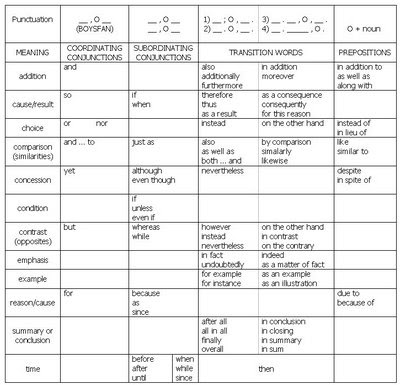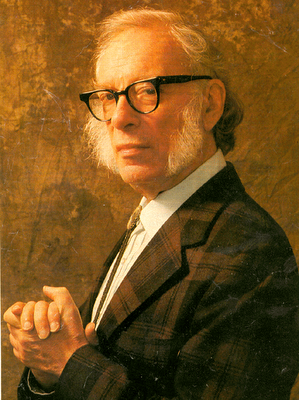Ahora me concedo la libertad de escribir un poco acerca de lo que es el TOEFL y unas cuantas cosas más. Primeramente veremos que es el TOEFL y los tipos de TOEFL. Después una vaga descripción de la estructura del TOEFL IBT que se esta poniendo mucho de moda por todas partes y finalmente algunos tips que probablemente les pudieran ayudar a los que quieren mejorar su inglés.
¿Qué es el TOEFL?
TOEFL es un examen que mide tus habilidades en el idioma inglés. TOEFL por sus siglas en inglés: Test of English as a Foreign Language.
¿Cuántos tipos de examen TOEFL existen?
1. TOEFL IBT (Internet Based Test)
Tiene secciones de lectura, audio, escritura y oral. Este exámen te ofrece la posibilidad de enviar tus puntuaciones a 4 instituciones o personas sin cargo adicional. Este examen esta aproximadamente en 155 dólares. Para hacer el exámen debes checar en esta página los lugares y fechas para presentar el exámen y todo el trámite es on line.
2. TOEFL PBT (Paper Based Test)
Este tipo de examen tiene secciones de lectura, estructura (grammar), audio y escritura. Su costo es de aproximadamente 150 dólares. Para hacer el exámen debes checar la misma página del link anterior y lo mismo la petición del examen es on line.
3. TOEFL CBT (Computer Based Test)
El TOEFL en computadora combina muchas de las mismas preguntas como el tradicional PBT. Consta de cuatro secciones: Audio, lectura, estructura (grammar) y escritura. Algunas fuentes como wikipedia mencionan que este examen es ya obsoleto desde noviembre de 2005 pero no lo se a ciencia cierta.
4. TOEFL IPT (Institutional Paper Test)
Este exámen es muy parecido al Paper Based Test porque consta de las mismas secciones (excepto escritura o redacción) con la única diferencia que es un exámen con una validez mucho más local, a comparación de la validez internacional que puede tener el PBT o el IBT. Este exámen tiene la ventaja de que no es tan costoso (aproximadamente 45 dólares), pero a su vez tiene la desventaja de que tus puntuaciones no pueden ser enviadas oficialmente a ninguna institución. Después de algunos días de haber presentado el exámen sólo te darán un papel con las puntuaciones obtenidas.
Cada exámen usa diferentes puntuaciones, aquí un comparativo entre PBT, CBT y IBT

TOEFL IBT
Este es el examen mayormente aceptado como prueba del dominio en el idioma inglés en muchas universidades en el extranjero. Este examen evalúa al individuo en las cuatro habilidades (reading, listening, speaking, and writing) por separado y de forma integrada (combinaciones entre dos o tres habilidades). El exámen esta dividido de la siguiente manera:
Reading
* 1st Part 20 minutes
1 Passage
* 2nd Part 40 minutes
2 Passages
* 3rd Part 20 minutes (sometimes it is not included this third part)
2 Passages
Listening
* 1st Part
1 Conversation 2-3 minutes
2 Lectures 4-5 minutes (each lecture)
* 2nd Part
1 Conversation 2-3 minutes
2 Lectures 4-5 minutes (each lecture)
* 3rd Part (sometimes it is not included this third part)
1 Conversation 2-3 minutes
2 Lectures 4-5 minutes (each lecture)
Speaking
* 1st Part -Two Independent tasks-
- A question to be answered
- A choice question
* 2nd Part -Two Integrated Tasks Reading/Listening/Speaking- (How the ideas are related)
- Campus Situation
- Academic Situation
* 3rd Part -Integrated Tasks Listening/Speaking- (Longer listening question that ask you to summarize key points on the passage)
- Campus Situation
- Academic Situation
Writing
* 1st Part -Integrated Task Reading/Listening/Writing-
Read a passage and listen 1-2 minutes a lecture
Write about 100-200 response about how the information in the two passage is related (20 minutes)
* 2nd Part -Independent Task-
Consist on an essay topic. The ideas on the essay are about your personal experience (30 minutes)
TIPS
ESCRIBIR EN INGLES
Es muy común para todos los que empiezan a escribir en inglés el querer aplicar las reglas del español para la escritura en inglés. Pero eso es algo que no es correcto y que se penaliza en exámenes como el TOEFL. Para aquellos que quieran aprender a escribir en inglés les paso la siguiente lista de conectores, la cual a mi me ha sido de mucha utilidad. Es recomendable que todos los días escriban en inglés para que practiquen y si no saben sobre que escribir. Chequen las siguientes páginas donde encontrarán que si tienen sobre que escribir y mucho.
Journal Topics
More Journal Topics

“O” stands for the connectig word.
"boysfan" is a memory aid to remember the connectors that follow this structure: __ , O __
b - but
o - or
y - yet
s - so
f - for
a - and
n – not
Examples:
My mother was doing a cake, but I could not help her.
I am going to do my homework at night, or I can do it right now.
My friends are very nice; however, they do not smile to all people.
VELOCIDAD EN LA LECTURA
Es muy importante tener velocidad en la lectura, por eso es necesario practicar. Si no tienes nada para leer en inglés, pues es una buena opción empezar con cualquiera de los siguientes periódicos en línea.
The Wall Street Journal
The New York Times
Newsweek
BBC
Timesonline
VOCABULARIO
¿Piensas que lo sabes todo? Probablemente sea cierto, pero porque no checas igual y te falta alguna palabra por aprender. También cuando lees el "The New York Times" puedes dar click en cualquier palabra y atomáticamente te da el significado, muy cómodo cierto?
YOU TUBE
You Tube al servicio de la comunidad que quiere aprender inglés. Para mi son los mejores canales y si saben de otros, pues pasen el dato.
Ouliogrooves Channel
PrivateEnglishPortal
ADICIONALES
Otras páginas sobre cosas bien interesantes, ojalá y las visiten.
History
How stuff works?
Arts and letters daily
Nota: Lo más importante es nunca dejar de practicar. Si algo no esta claro háganmelo saber, ya acepto críticas constructivas ToI
